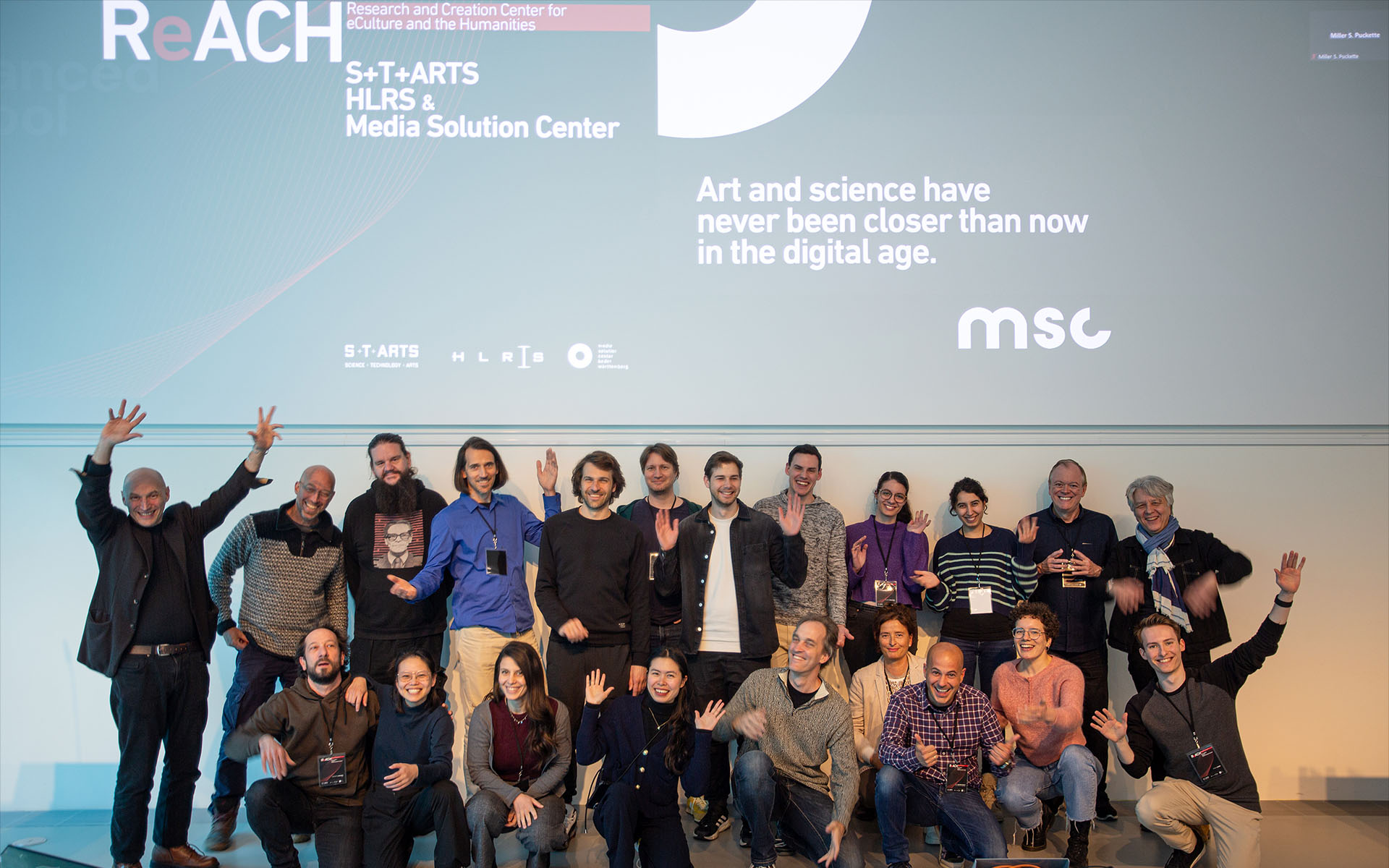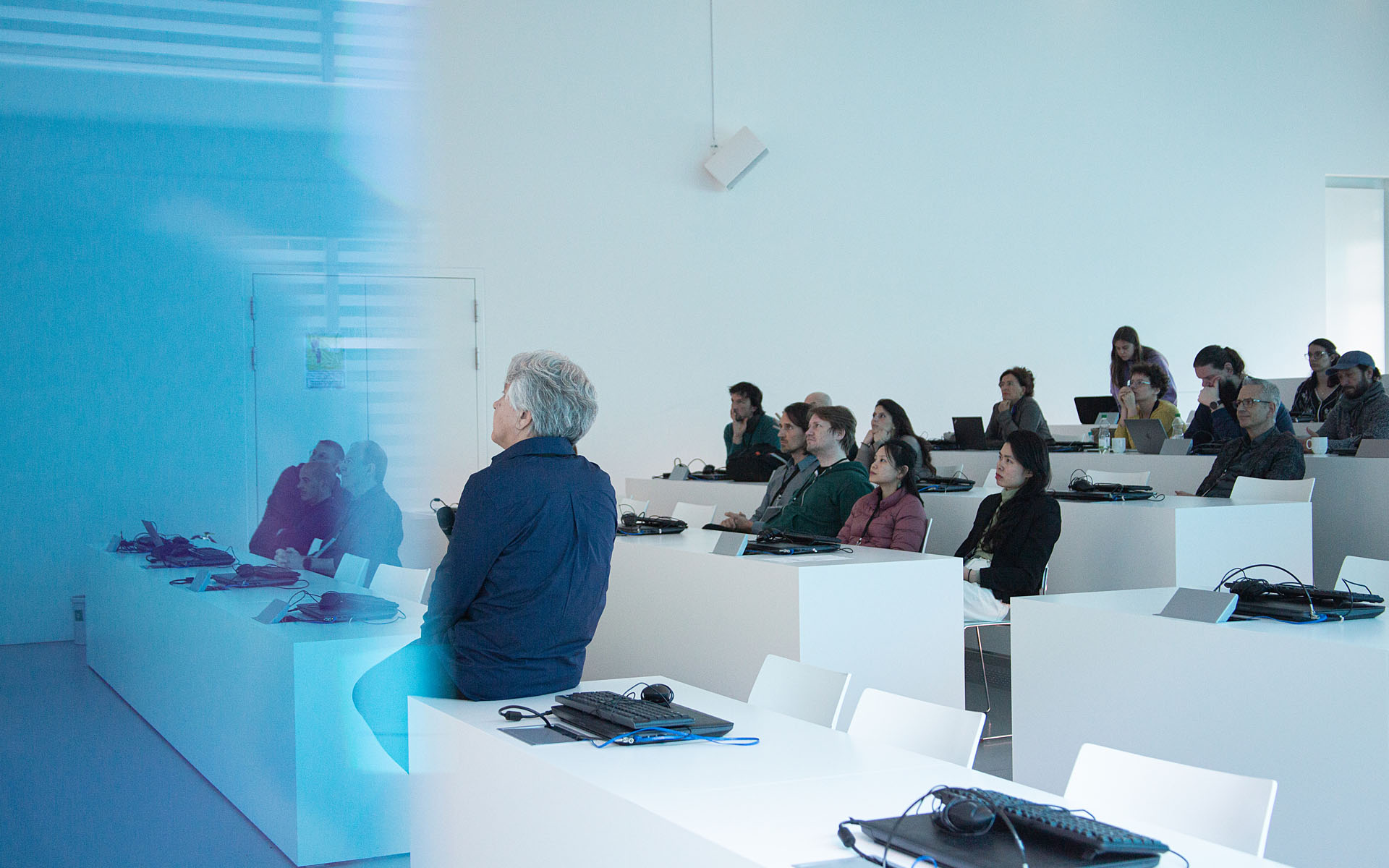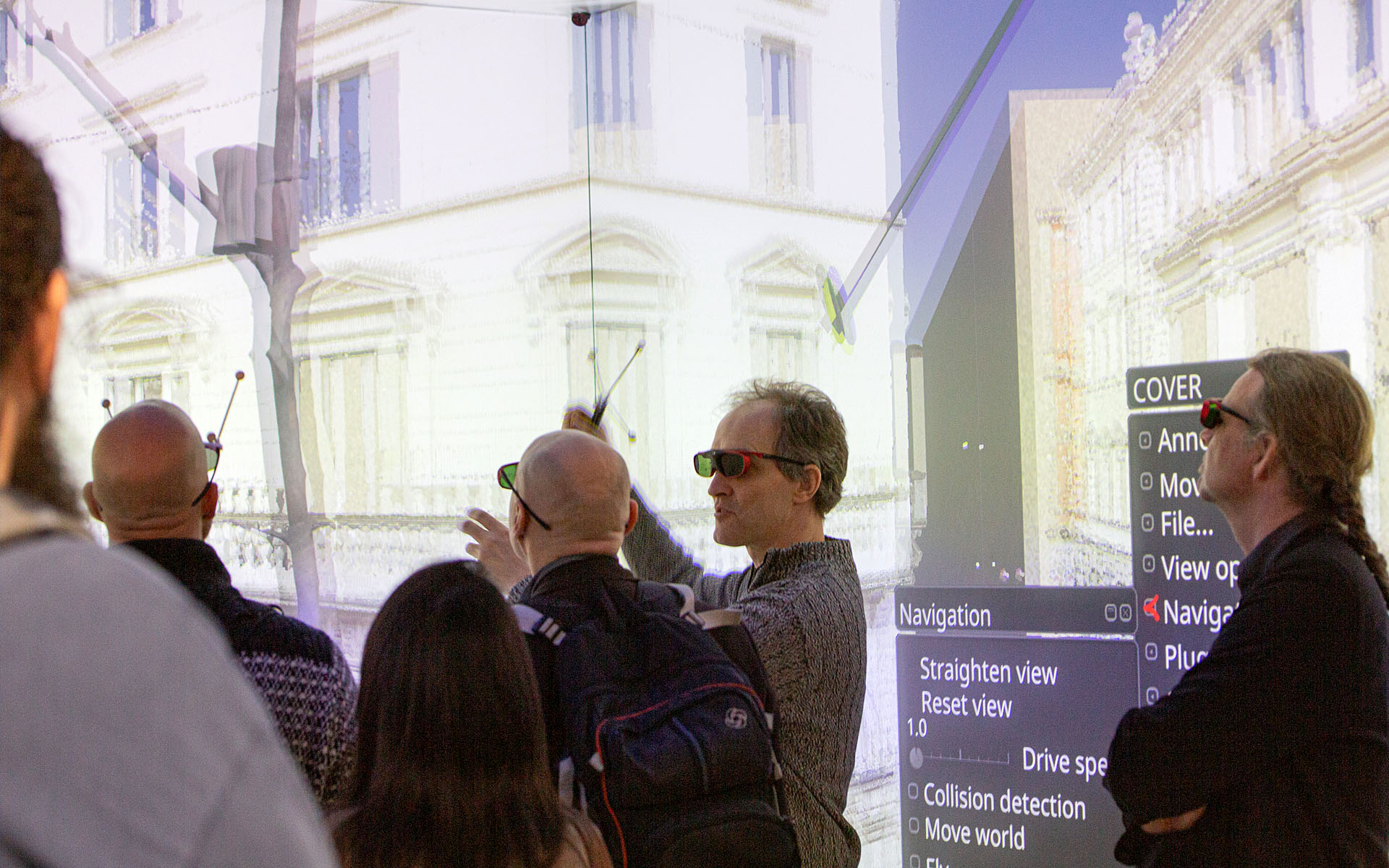
Together with our partners S+T+ARTS and the HLRS Stuttgart, we launched our first Research and Creation Centre for eCulture and the Humanities from 17 to 19 April.
Developing a research and creation center focused on electronic and computational culture, or eCulture, is crucial due to the rapid advancements in technology and science. These advancements lead to a complex world with rapidly evolving concepts, such as artificial intelligence and high-level computer simulations, which are often difficult to understand. This complexity makes it challenging to stay informed, causing many to feel overwhelmed and lose control in our digitally driven age.
This issue is particularly significant for those in digital culture, the creative economy, and the arts. If creators struggle to understand the concepts shaping their work, meaningful engagement from the wider audience becomes even more difficult.

ReACH addresses this challenge through three core components: an Advanced School, a CreativeLab, and an Observatory of eCulture. The Advanced School redefines education by providing essential knowledge just in time, rather than in an overwhelming flood. The Observatory of eCulture supports this by gathering data, conducting research, and forecasting potential scenarios to keep the Advanced School updated with the latest insights. The CreativeLab applies real-time knowledge to practical actions and products, fostering innovation and replenishing the cycle of ReACH.
Establishing a research center focused on eCulture is essential in our rapidly advancing technological landscape. ReACH offers a proactive solution by delivering timely education, fostering robust research, and catalyzing innovation. This initiative not only addresses the complexities within eCulture but also empowers meaningful engagement in our digitally driven age.
The next ReACH workshop will take place from 24 to 27 September.
Text by Marcos Cuzziol and Sofia Hauser

